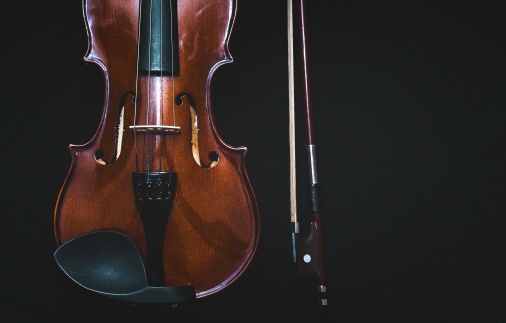
Photo: Baher Khairy, www.unsplash.com.
“I used to play the tuba years ago, but I quit taking lessons.”
I remember hearing this countless times growing up as an evangelist’s kid. Usually, it was spoken by middle-aged adults, a look of regret filling their face. Or by a young parent who wished they had stuck with piano lessons so that they could pass on their knowledge to their family. The instrument always varied, but the regret never did.
If I had a quarter for every time someone has said this to me, I would be so wealthy I could buy my own little island. Well, maybe not. But I would certainly have enough money to buy books for quite some time–which would be fine with me.
I always wished I could say something encouraging to the people who said this to me, but I usually never thought of anything clever. I would smile, nod, and shake their hand. What could I say? “I’m sorry” sounded lame.
You see, in the Marshall family there was no such thing as not learning an instrument. You just did. And there was no such thing as quitting an instrument. You just didn’t. End of discussion.
Did I resent this? No doubt it crossed my mind to feel a tiny bit rebellious as I labored over my piano scales or felt the steel strings of my guitar or mandolin mark indentations on the tips of my fingers. (And I was not even as dedicated as some of my siblings were.)
Do I resent this now? No, not at all–because I appreciate the value of learning an instrument and the hard work and dedication required to achieve this. Now, I can look back and thank God that my parents never let me quit practicing my instruments.
Much has been written on the benefits of learning to play an instrument. I am certain that my Dad knew exactly what those benefits were, but for some reason only one sticks in my mind. I heard him tell kids and teenagers this often:
“Learning an instrument can help you play video games better,” my dad used to say. “Helps your fingers move faster.”
I did not play video games much as a child, but Dad made the point well: learning to play an instrument benefits a person in ways they may not realize.
In his article “18 Benefits of Playing a Musical Instrument,” Michael Matthews says that some of the benefits include increasing your memory capacity, enhancing coordination, promoting social skills, and teaching discipline.
On top of all of the benefits to learning an instrument, researchers have found that amazing things happen inside our brains when we play an instrument. My sister Sharon shared a video with our family recently. The TED-Ed video explains how both our left brain and our right brain are involved when we play music.
“Playing music is the brain’s equivalent of a full body workout,” Anita Collins says.
I may not have had a choice about learning an instrument as a child, but today I am thankful that the choice was not left to me–or I may not have chosen for myself.
How grateful I am now that Dad and Mom made me learn and refused to let me quit. If they had, I would have lost some of the richness of life. I would have lost a chance to touch someone else’s life. As an adult, one of my greatest blessings in life is sharing music with others. Music has enriched my life in ways I am still realizing to this day.
You may have stopped learning an instrument as a child, but you can start over now or begin for the first time.
And for goodness’ sake, do not let your child quit lessons!